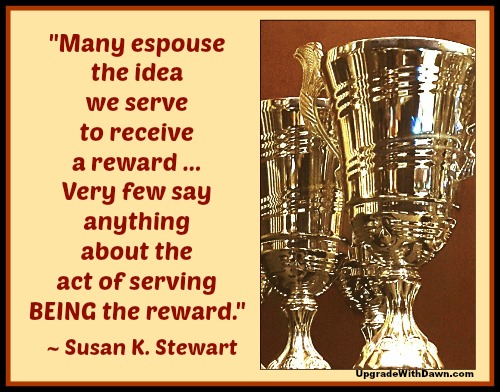Courage When Christians Disappoint
Kathy Collard Miller always cuts to the heart of a matter. As she courageously speaks the truth of scripture into the toughest circumstances, her heart for women to mature in faith comes shining through. In this Spiritual Maturity UPGRADE, she addresses a difficult topic—Christians who dissapoint us.
"When Christians we respect disappoint us, we can be tempted to be discouraged and even give up serving God," Kathy says. "After all, won’t other Christians continue to fail us?"
I (Dawn) remember a situation when I was so hurt by Christians I served with—people I deeply respected—who made choices that hurt me and colored how I felt about Christians for a number of years. But I didn't want to stay bitter; I wanted to get "better" with God's help. He healed my wounded heart and taught me many things. Kathy says it takes courage to face down these kinds of disappointments in a biblical way.
Kathy continues . . .
We all know of someone whose service for God was weak and struggling. Even worse, it seems they have failed God.
What can we know about God that will help us courageously keep our eyes on Him and trust He has the power to help us?
First, God isn’t surprised by His children struggling.
One famous example from the Bible is in Acts 15:36-41. The Apostle Paul and his ministry partner, Barnabas, went different ways because they disagreed about whether Mark should continue serving.
But Paul thought best not to take with them one who had withdrawn from them in Pamphylia and had not gone with them to the work. And there arose a sharp disagreement, so that they separated from each other (15:37-38, ESV).
Barnabas took Mark with him and Paul took Silas. We can only speculate the hard feelings each one of these men held against the other.
Mark had disappointed them, yet his cousin, Barnabas—known for his encouraging heart—didn’t give up on Mark.
Even though Paul and Barnabas may have been surprised by all that was happening, God wasn’t surprised one bit.
In this case, more ministry was accomplished because the outreach was doubled.
Second, God wants us to remember that the final chapter hasn’t been written.
When Paul and Barnabas went their separate ways, most likely people were disappointed and discouraged. But the Apostle Paul later wrote to Timothy:
Luke alone is with me. Get Mark and bring him with you, for he is very useful to me for ministry (2 Timothy 4:11 ESV).
What? You mean Paul’s opinion about Mark changed? YES!
Mark matured and became increasingly valuable in church ministry.
And Mark wrote one of the Gospel accounts of Jesus’s life—the Gospel of Mark! Commentators believe he wrote it primarily based on the stories from Peter.
Third, God’s forgiveness and ability to restore are unlimited.
When we are in the midst of feeling discouraged because a Christian has seemingly failed us, we must remember God isn’t flummoxed or confused wondering how He’s going to bring glory to Himself.
- He never says someone can’t be forgiven or used for His glory.
- God will discipline and restore any repentant person to fellowship—and that applies to the person who failed you.
- Of course, he or she must choose to be restored, but God’s power to forgive is always available.
FOUR IDEAS for responding courageously when others disappoint you.
1. Take Your Eyes Off Fallible People.
If we are disappointed in someone, we “appointed” them as a kind of god who we expect will be perfect.
Only Jehovah God is perfect.
God never disappoints us, but people always will.
2. Focus on Who You Are Really Serving.
Sometimes our people-pleasing tendencies want the approval of other people. We feel let down when that person fails and is no longer giving us the attention we crave.
We must learn to more and more look to God Himself for encouragement. That doesn’t mean God won’t use other people to bless us, but He must be the main source.
3. Don’t Take Another Person's Failure Personally.
If someone fails us, we could take it personally by thinking we failed them because we didn’t keep them in line.
We might blame ourselves, but the Holy Spirit holds accountable each and every person for their own choices.
Truly no man can ransom another, or give to God the price of his life (Psalm 49:7 ESV).
4. Evaluate Your Heart for Any Idols.
Sometimes we are discouraged because we’ve put another person on a pedestal. A spiritual idol is anyone or anything we value more than God.
Our discouragement may mean that person who turned away from God had become our idol. John’s last comment in his first epistle is, Little children, keep yourselves from idols (5:21 ESV).
When you feel discouraged by the actions of another Christian, ASK God for His provision of courage and greater trust in Him.
And of course, PRAY for that believer to return to full commitment to the Lord!
Can you think of anyone who you might be putting on a pedestal?
 Kathy Collard Miller loves to help women trust God more through her 59 books and speaking in 35 states and 9 foreign countries. Her website/blog
Kathy Collard Miller loves to help women trust God more through her 59 books and speaking in 35 states and 9 foreign countries. Her website/blog  is www.KathyCollardMiller.com. Kathy’s newest book is a women’s Bible study on courage, from which this post is excerpted: Heart of Courage: Daughter of the King Bible Study Series. Check out Kathy’s Amazon author page at: https://www.amazon.com/Kathy-Collard-Miller/e/B001KMI10S/
is www.KathyCollardMiller.com. Kathy’s newest book is a women’s Bible study on courage, from which this post is excerpted: Heart of Courage: Daughter of the King Bible Study Series. Check out Kathy’s Amazon author page at: https://www.amazon.com/Kathy-Collard-Miller/e/B001KMI10S/
Graphic, courtesy of Liza Summer at Pexels.
 Post a Comment → Posted on
Post a Comment → Posted on  Tuesday, May 17, 2022 at 10:54AM
Tuesday, May 17, 2022 at 10:54AM 









